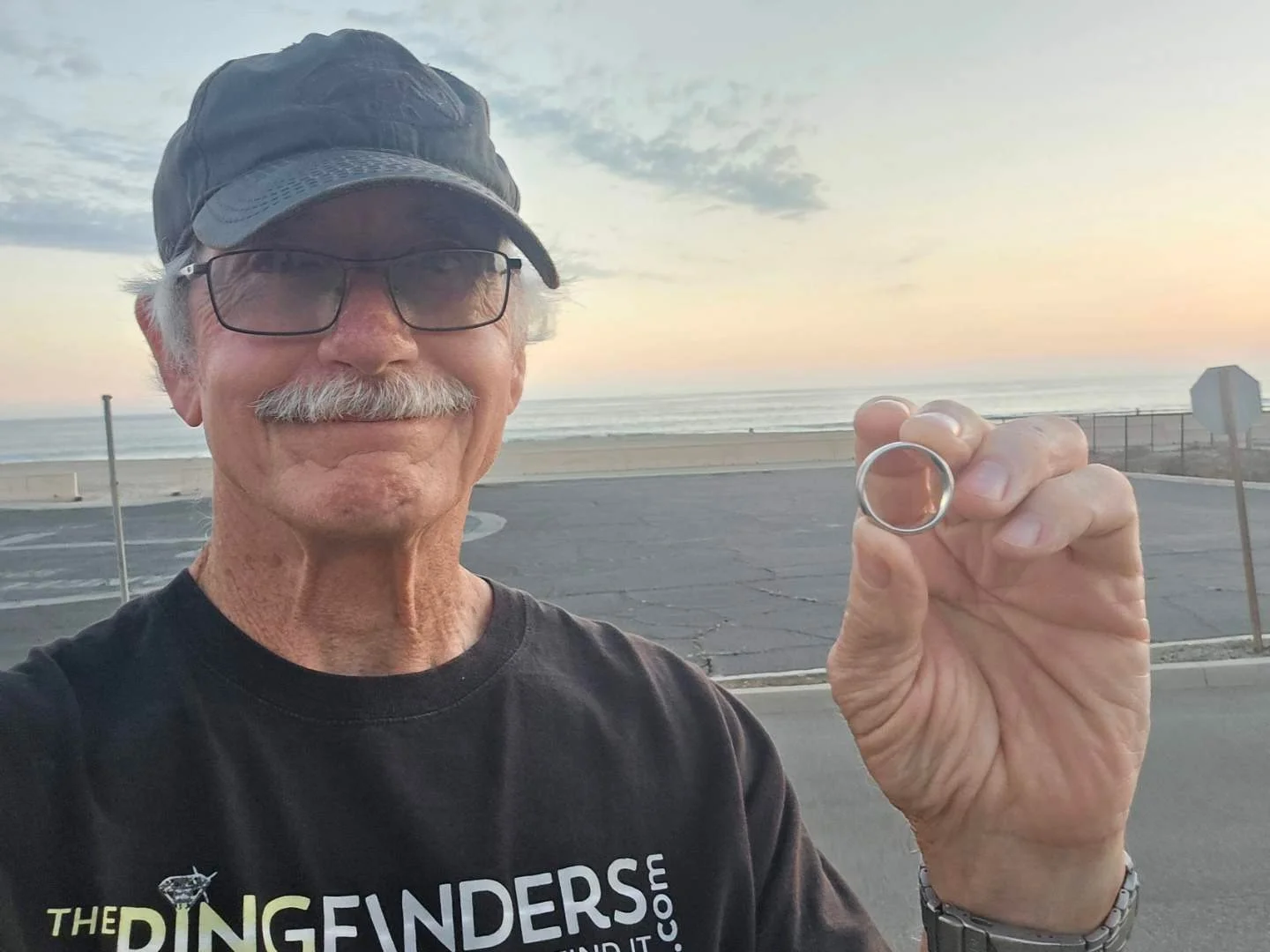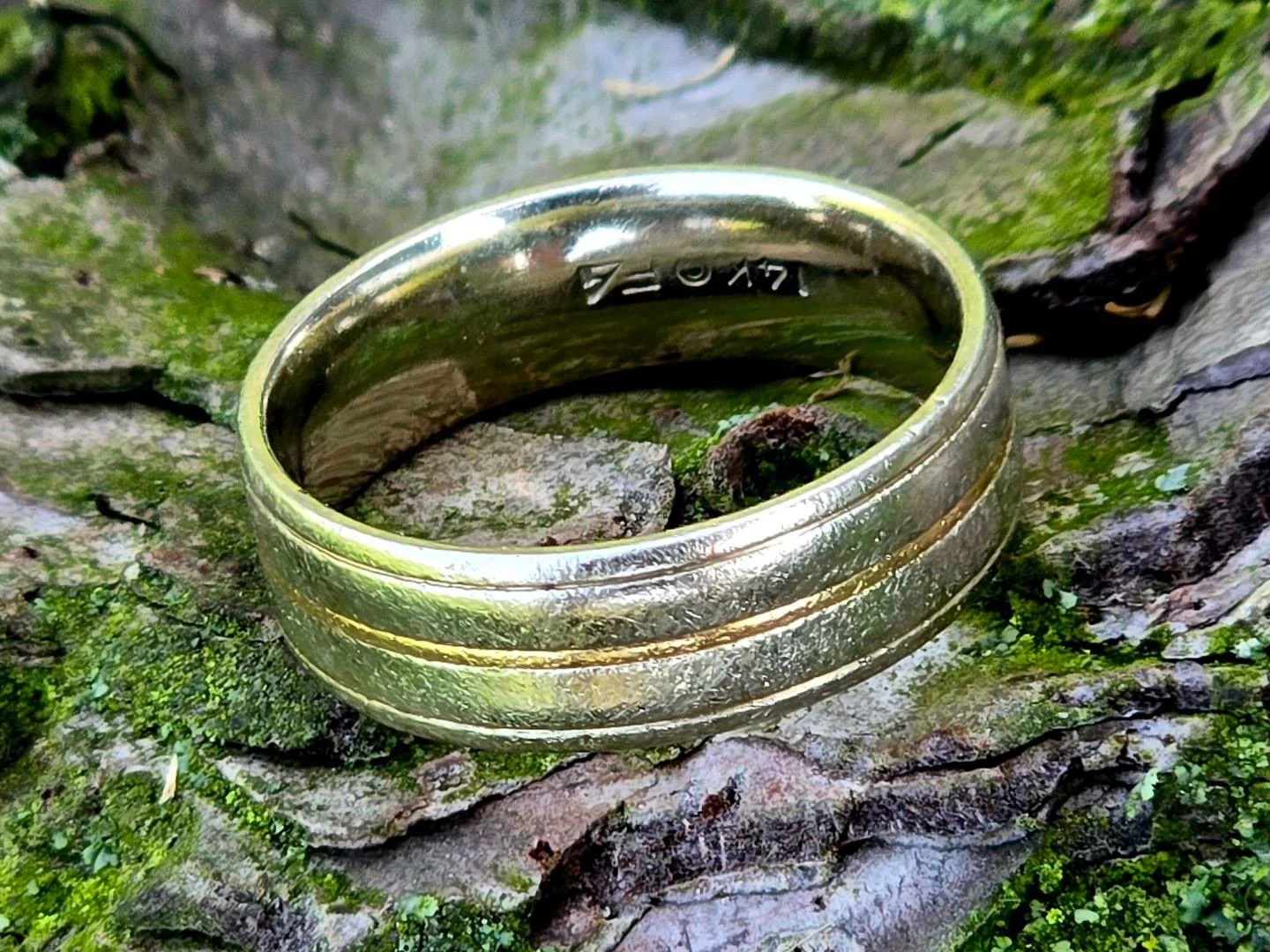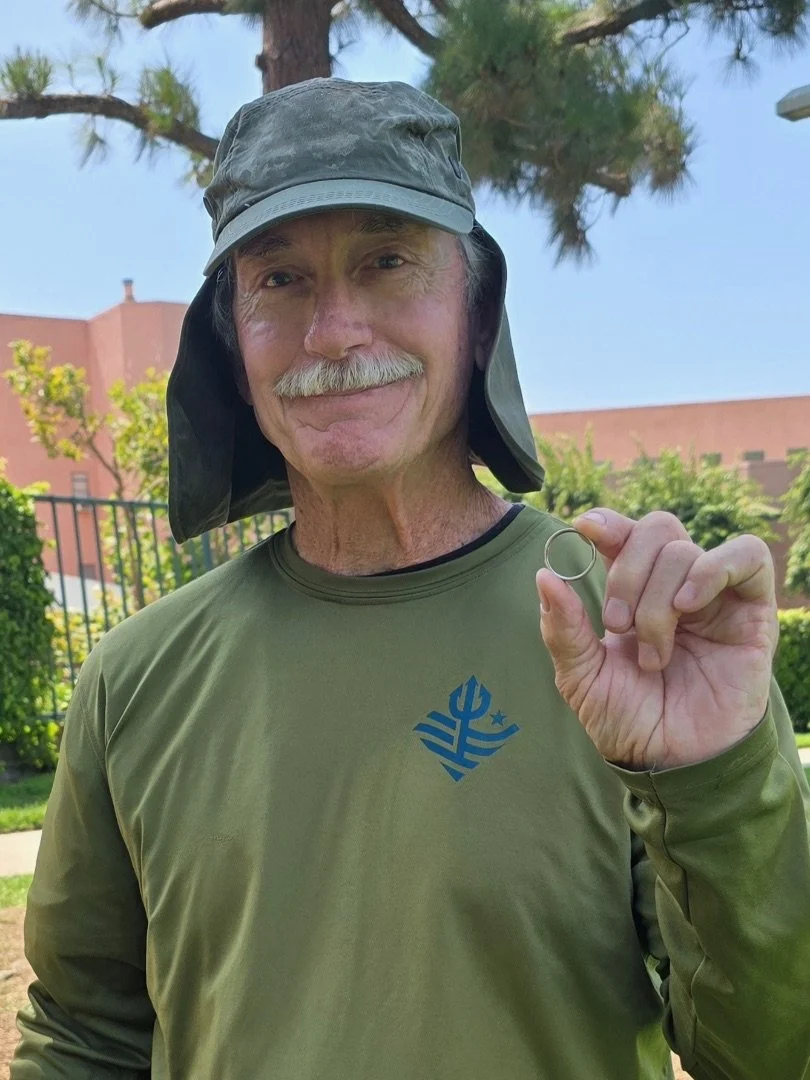Steve Smith Recovers Lost Valuables Around SoCal Beaches by Writer and Contributor Emily McGinn
If you ever lose a valuable item at the beach and figure it is likely gone forever, sunk into the sand and rock, there is one man you can call to give you a fighting chance at recovery.
Steve Smith had a 23-year career as a welder, but in retirement he has found a new passion: metal detecting. He became interested in it 11 years ago when he experienced a summer where the waves were not ideal for surfing. As a result, he wanted a hobby he could pivot to when he could not surf. A catalog in the mail pointed him in the direction of metal detecting, and he started doing research.
“I said this will get me out of the house, and I can get out on the beach while the waves are bad,” Smith says. “So I got the metal detector I thought was going to be good for me, and I started doing it.”
While Smith is a metal detector, perhaps a more accurate description is that he is a specialist in the art of finding lost things. His first project came upon him by chance. Shortly after he ventured into metal detecting, a lifeguard at Huntington Beach approached him and shared that there was a couple at the beach who had lost a wedding ring. The lifeguard thought that Smith might be able to help.
Initially, Smith did not find the ring, but he took down the couple’s phone number. The next day, Smith returned to the beach to give it another shot. The search ended in his first successful recovery.
“I called them up and told them, and they were going to celebrate their first wedding anniversary in a month,” Smith recalls. “[The wife] was crying, they were hugging me and I thought to myself, ‘Well, that's kind of fun. I like this.’ So I started researching and found an online group called the Ring Finders, and I guess the rest is history.”
Smith now operates through his page on Ring Finders, functioning as a sort of hotline for people who have lost items on beaches, as well as in parks and fields, across Southern California. He is closing in on nearly 900 total recoveries.
For Smith, item recovery has elements of detective work, as he must determine what was lost, when the person lost it and where it might be. The process can be painstakingly slow, especially if the search area is large.
“You have to cover each inch of sand with the end [of the metal detector]. You have to get over the item with that,” Smith says. “You've got 11 inches about on that, so you have to take that 11 inches and go over every inch of sand. If the area is small, then it's not too bad. But if it's large — I've had people give me half a football field — [it becomes more difficult].”
Smith normally has a recovery rate in the high 90-percentile range if the item is actually in the space where he is searching.
Finding lost things has become a dominant aspect of Smith’s post-retirement life. He has to be on call at all hours of the day, as time is of the essence. He tries to get to a site within the hour if possible, whether it is day or night, to minimize the possibility of external factors, such as beach cleanup vehicles, inhibiting a successful recovery.
“My wife says that when I was working it was 6-3:30 every day. Now she says, ‘You’re like a doctor — when someone calls, you leave,’” Smith jokes.
Though the work can be demanding, Smith has enjoyed meeting people across the area and helping them out. He also finds the work extremely rewarding, though he charges no set fee, instead requesting a nominal fee for coverage of travel expenses. The stories of successful recoveries — especially with items that hold immense sentimental value — motivate Smith to continue his work.
He recalls one lady who called him after her husband lost a wedding ring. The tungsten ring was not expensive, but when Smith found it about 40 minutes later, she began to cry tears of joy.
“It was probably worth $25-50 at the most. She was overcome with emotion,” Smith says. “She started telling me all about their story. When they got married, instead of getting really nice rings, they opted for the honeymoon. So they went to Ireland. And when they got over there, they were traveling around, and they were in this little hamlet somewhere. The local jeweler took their rings and engraved some love sayings inside of the ring. So that was something that could never be replaced.”
He even was able to apply his item-recovery skills to sifting through burn areas following the devastating fires that ravaged the Los Angeles area earlier this year.
Another story that sticks in Smith’s memory was a call to find a box buried in a yard that belonged to a woman’s father. Smith initially expected it to hold treasure like silver and gold, so he was shocked when she opened it to reveal a collection of old photos. These types of stories remind Smith of what is important, and they keep him heading out to the beaches to find the next lost item. “I thought, ‘Wow, treasure is not what I or what people always expect it to be.’ Sometimes, treasure is a little bit different,” Smith says. “I've had people with very expensive jewelry not get very excited about it. But somebody like this, where they have something that's very cheap, very inexpensive, but means the world to them — those are the kind of stories that really stand out to me.”
Emily McGinn is a journalist based in the Los Angeles area. She enjoys reporting on and writing about a variety of topics from lifestyle to news, especially in her areas of specialty, environmental science and political science.




